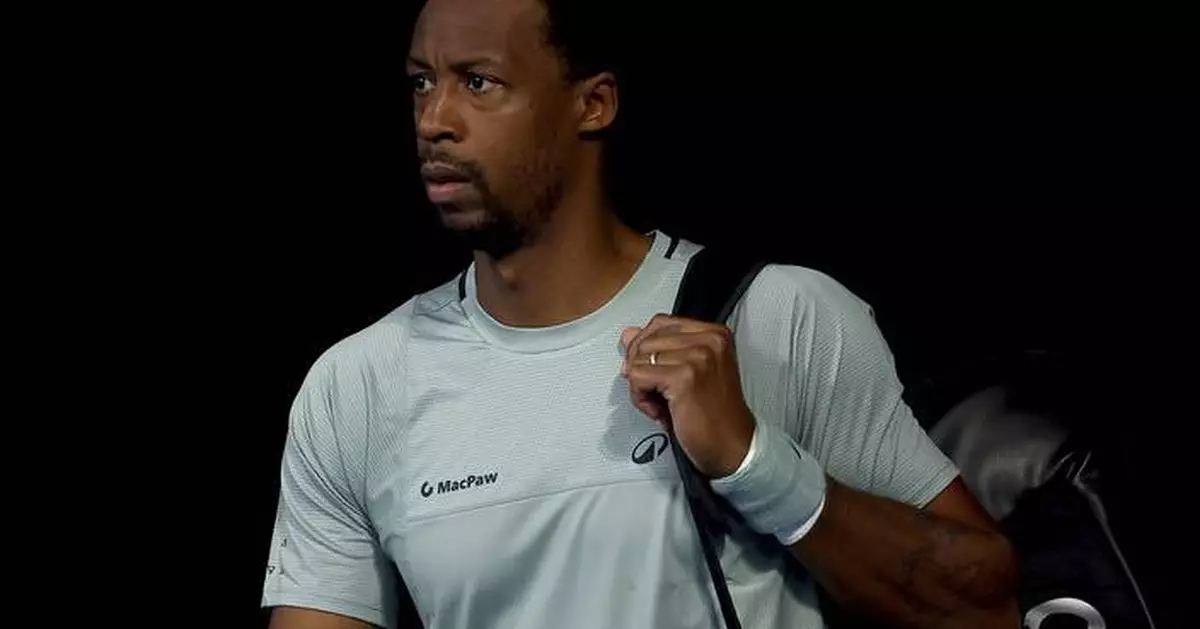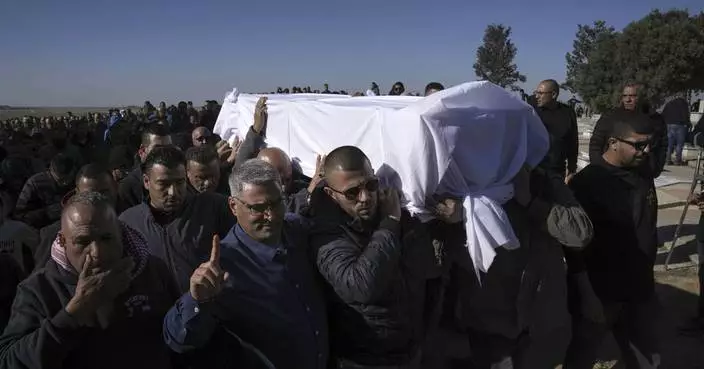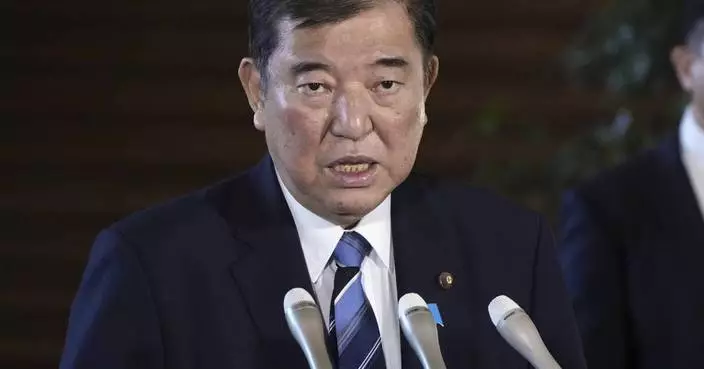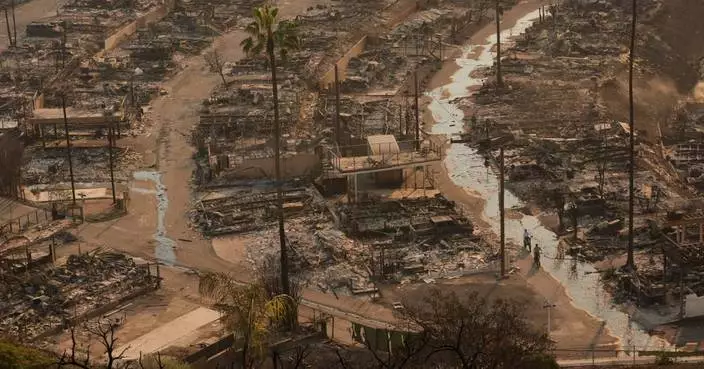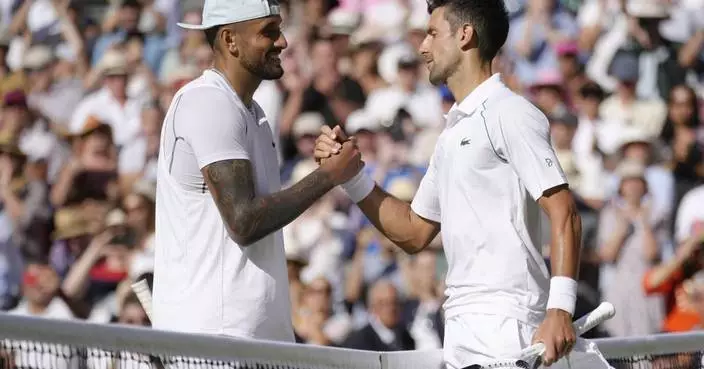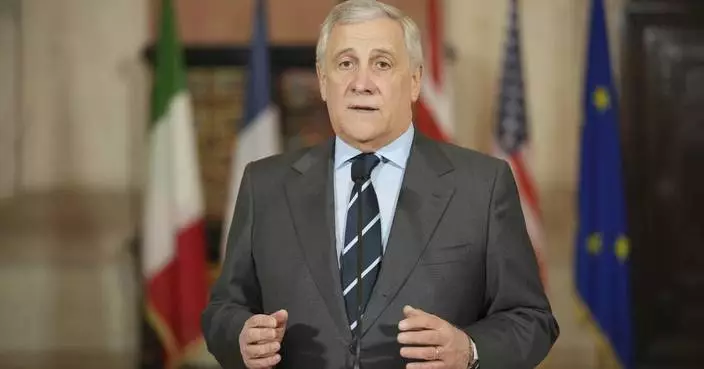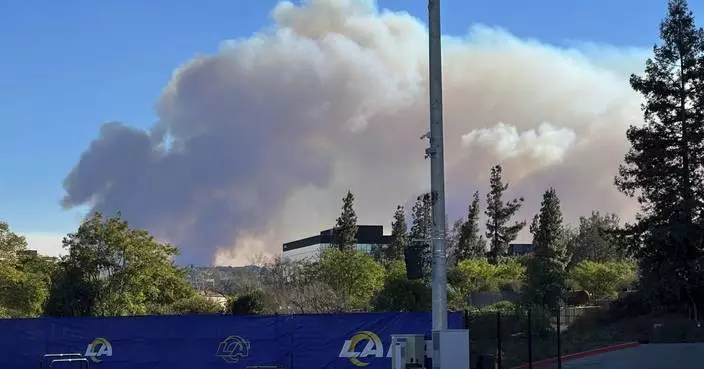AUCKLAND, New Zealand (AP) — Gael Monfils became the second oldest player since 1990 to reach a final on the men's elite tennis tour after beating American Nishesh Basavareddy 7-6 (5), 6-4 in the semifinals at Auckland on Friday aged 38 years, 131 days.
Ivo Karlovic holds the ATP Tour record, having won through to final in Pune, India in 2019 at the age of 39 years, 311 days. Monfils edges Stan Wawrinka who was aged 38 years and 124 days when he reached the final at Umag, Croatia in 2023.
Karlovic also reached the final at Den Bosch in 2017 aged 38 years, 110 days while Roger Federer (Basel in 2019 aged 38 years and 80 days) and Rafael Nadal (the 2024 Swedish Open at 38 years and 48 days) also are in the top five.
Frenchman Monfils has been breaking records steadily in Auckland to reach his 35th ATP Tour final. When he beat Jan-Lennard Struff to reach the quarterfinals, he became the oldest player in the professional era to reach the last eight in Auckland.
He became the oldest-ever semifinalist in Auckland when he beat Facundo Diaz Acosta 6-3, 6-1 to reach his 73rd ATP Tour semifinal. Only Novak Djokovic has played more.
Monfils will face Zizou Bergs of Belgium in Saturday's final.
“Everybody knows I’m a warrior on the court, I don’t give up easy,” Monfils said after his semifinal. “I’m very pleased with the way I got through today, it wasn’t easy.
"The true fans know, that’s the way I am. I love defense and I feel like from day one if you ask anyone who knows me and tennis really well they will never tell you I’m an offensive player. I’m good in defense. It’s the way I’ve been blessed by the one upstairs.”
The 19-year-old Basavareddy also has been making waves in Auckland. He is the youngest American since Reilly Opelka to reach an ATP Tour level semifinal on hard courts. Opelka did so aged 18 in Atlanta in 2016.
He turned pro in December after a standout 2024 season on the ATP Challenger Tour.
Basavareddy has a daunting first-round match at the Australian Open, drawn as a wild-card entry to play 10-time champion Novak Djokovic.
AP tennis: https://apnews.com/hub/tennis
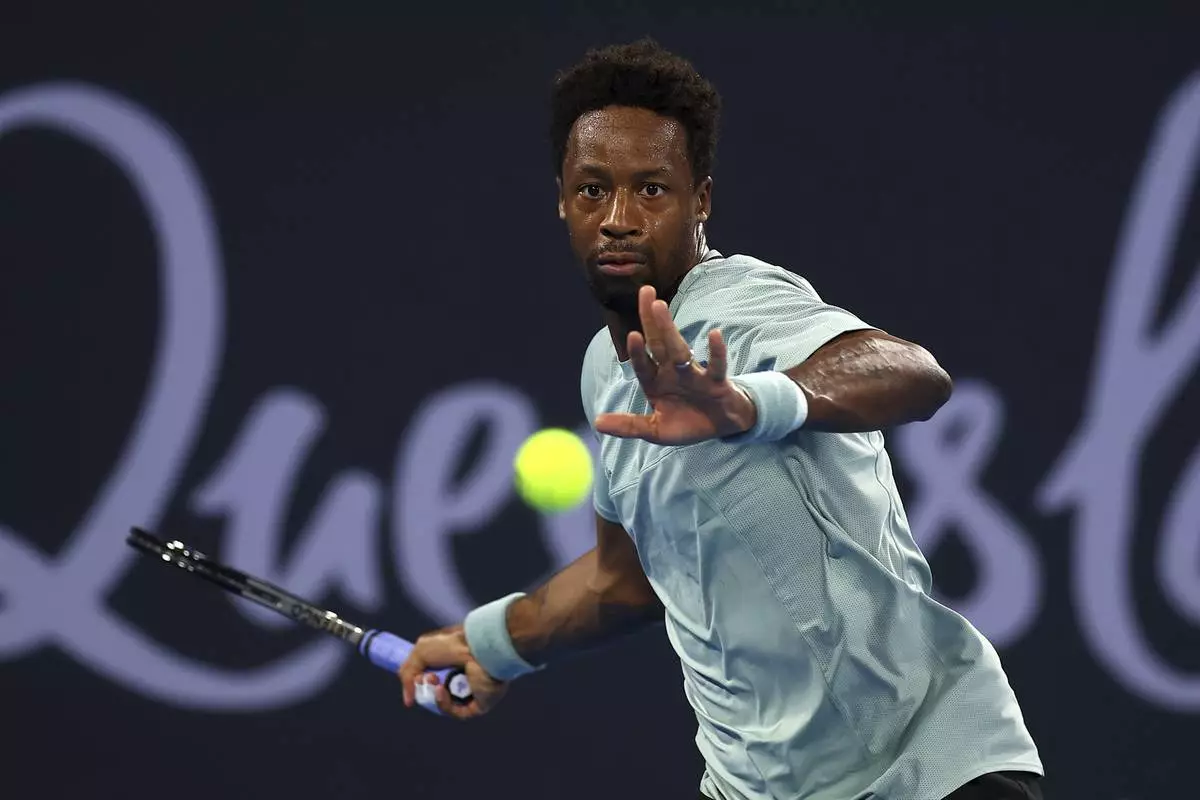
France's Gael Monfils plays a forehand to Serbia's Novak Djokovic during their match at the Brisbane International in Brisbane, Australia, Thursday, Jan. 2, 2025. (AP Photo/Pat Hoelscher)
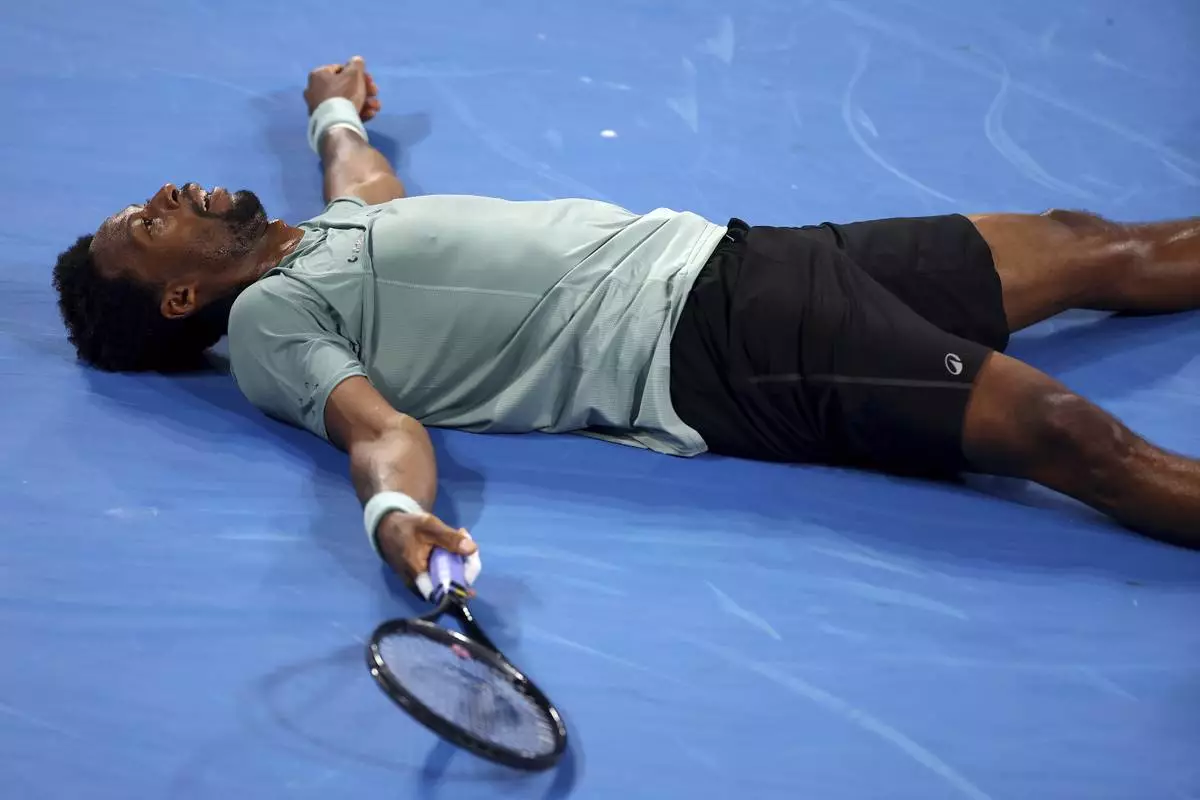
France's Gael Monfils reacts during his match against Serbia's Novak Djokovicat the Brisbane International in Brisbane, Australia, Thursday, Jan. 2, 2025. (AP Photo/Pat Hoelscher)
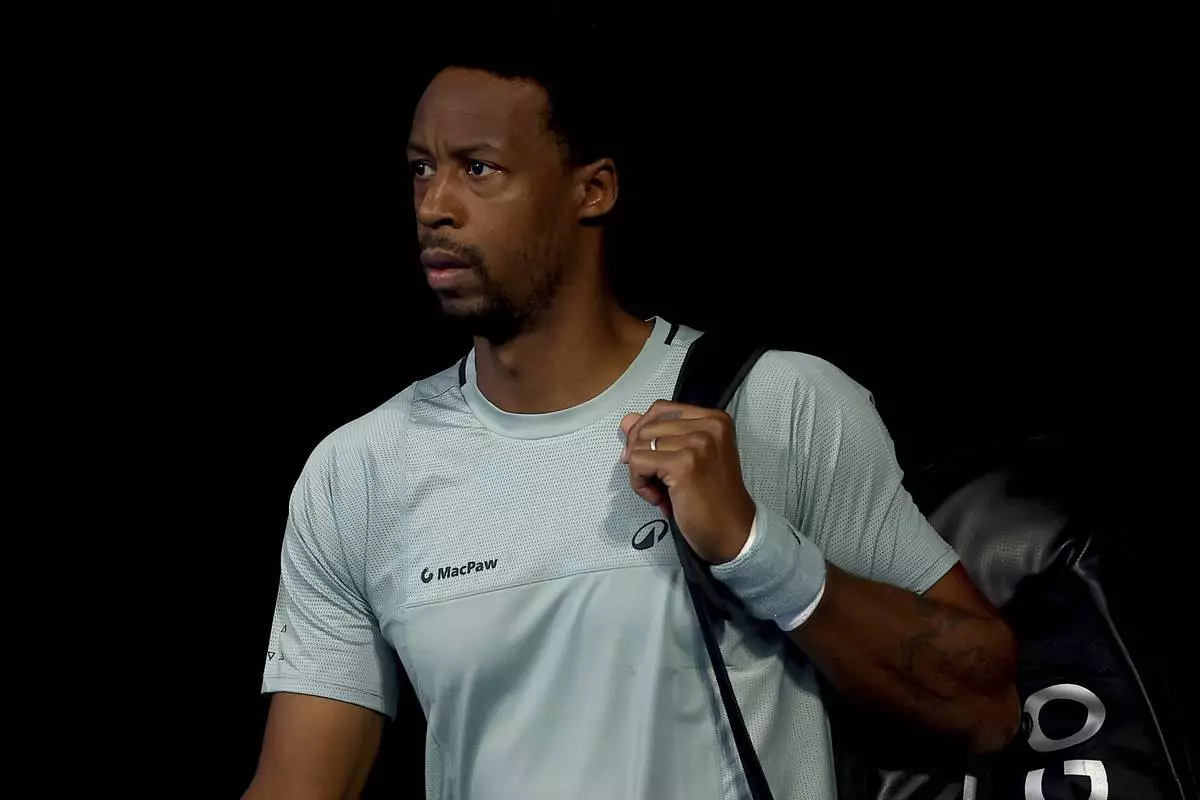
France's Gael Monfils looks on during his match against Serbia's Novak Djokovic at the Brisbane International in Brisbane, Australia, Thursday, Jan. 2, 2025. (AP Photo/Pat Hoelscher)
SEOUL, South Korea (AP) — South Korea’s acting leader on Friday accepted the resignation of the chief of the presidential security service, Park Jong-joon, as he faced police questioning over how his forces blocked law enforcement efforts to detain impeached President Yoon Suk Yeol last week.
The acting leader, Deputy Prime Minister Choi Sang-mok, also expressed regret over the clashes between law enforcement officials and the presidential security service over the attempts to detain Yoon and called for lawmakers to reach a bipartisan agreement to launch an independent investigation.
The Corruption Investigation Office for High-Ranking Officials and police are planning a second attempt to bring Yoon into custody as they jointly investigate whether his brief martial law declaration on Dec. 3 amounted to an attempted rebellion. The presidential security service blocked an earlier attempt to detain Yoon at his official residence, which he has not left for weeks.
Park ignored two summonses before appearing for questioning on Friday over allegations of obstructing justice, a week after his forces repelled dozens of anti-corruption and police investigators from Yoon’s official residence. Park said his duty is to protect the president and warned of “bloodshed,” as critics said that his agency is becoming Yoon’s private army.
The anti-corruption office and police have vowed to make a second, more forceful effort to detain Yoon, warning that members of the presidential security staff could be arrested if they get in the way. It wasn’t immediately clear how Park’s resignation and Choi’s call for an independent investigation to take over the probe on Yoon would affect their push to bring Yoon into custody.
The embattled president remains holed up at his official residence in Seoul, where the presidential security service has fortified the grounds with barbed wire and rows of vehicles blocking the roads.
Yoon made a short-lived declaration of martial law and deployed troops to surround the National Assembly on Dec. 3, which lasted only hours before lawmakers managed to get through the blockade and voted to lift the measure.
His presidential powers were suspended when the opposition-dominated Assembly voted to impeach him on Dec. 14 and accused him of rebellion. His fate now rests with the Constitutional Court, which has begun deliberating on whether to formally remove Yoon from office or reject the charges and reinstate him.
There’s also speculation that police may attempt to detain Park and other leaders of the presidential security service before trying again to execute the detainment warrant against Yoon, which was renewed by a Seoul court on Tuesday.
Speaking to reporters upon arriving for police questioning, Park again criticized the efforts to detain Yoon, saying that the investigation should proceed in a manner “appropriate for the status of an incumbent president” and the “dignity of the nation.”
“Many citizens are surely deeply concerned about the possible conflict and confrontation between government agencies,” Park said. “I came here today with the belief that under no circumstances should there be any physical clashes or bloodshed, and am hoping to prevent such incidents from occurring.”
Park said he made several calls to Choi, urging him to mediate an alternative approach with law enforcement and also made similar requests to Yoon’s lawyers, but did not receive a satisfactory response.
While the presidential security act mandates protection for Yoon, it does not authorize the service to block court-ordered detainments and some legal experts say the presidential security service’s action last week may have been illegal.
Asked in parliament about the presidential security service’s effort to block the detention, National Court Administration head Cheon Dae-yeop said Friday that “resistance without a legitimate reason can constitute a crime, such as obstruction of official duties.”
Although the president himself has wide-ranging immunity from prosecution while in office, that does not extend to allegations of rebellion or treason.
Yoon’s lawyers have questioned the legitimacy of a new detention warrant against Yoon issued by the Seoul Western District Court, arguing that the anti-corruption agency lacks legal authority to investigate rebellion charges or order police to detain suspects.
They also argue that detention and search warrants against Yoon cannot be enforced at his residence, citing a law that protects locations potentially linked to military secrets from search without the consent of the person in charge — which would be Yoon.
Yoon’s lawyers have urged the agency to either indict the president or seek a formal arrest warrant, a process that requires a court hearing. However, they have said that Yoon would only comply with an arrest warrant issued by the Seoul Central District Court, which handles most key requests in high-profile cases.
They accuse the agency of deliberately choosing another court with an allegedly favorable judge, even though the official residence is located in the jurisdiction of the Western District Court.
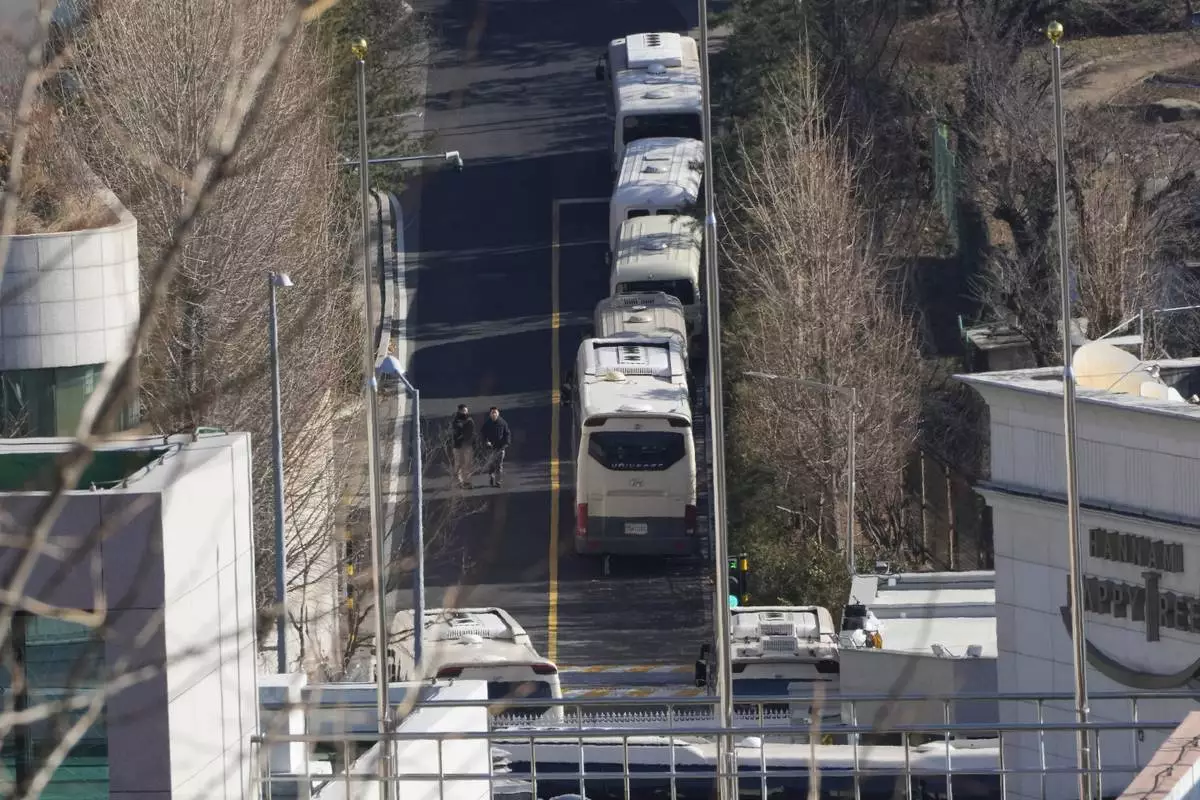
Security personnel walk on a road lined up with buses blocking the entrance gate of impeached South Korean President Yoon Suk Yeol's residence in Seoul, South Korea, Friday, Jan. 10, 2025. (AP Photo/Ahn Young-joon)
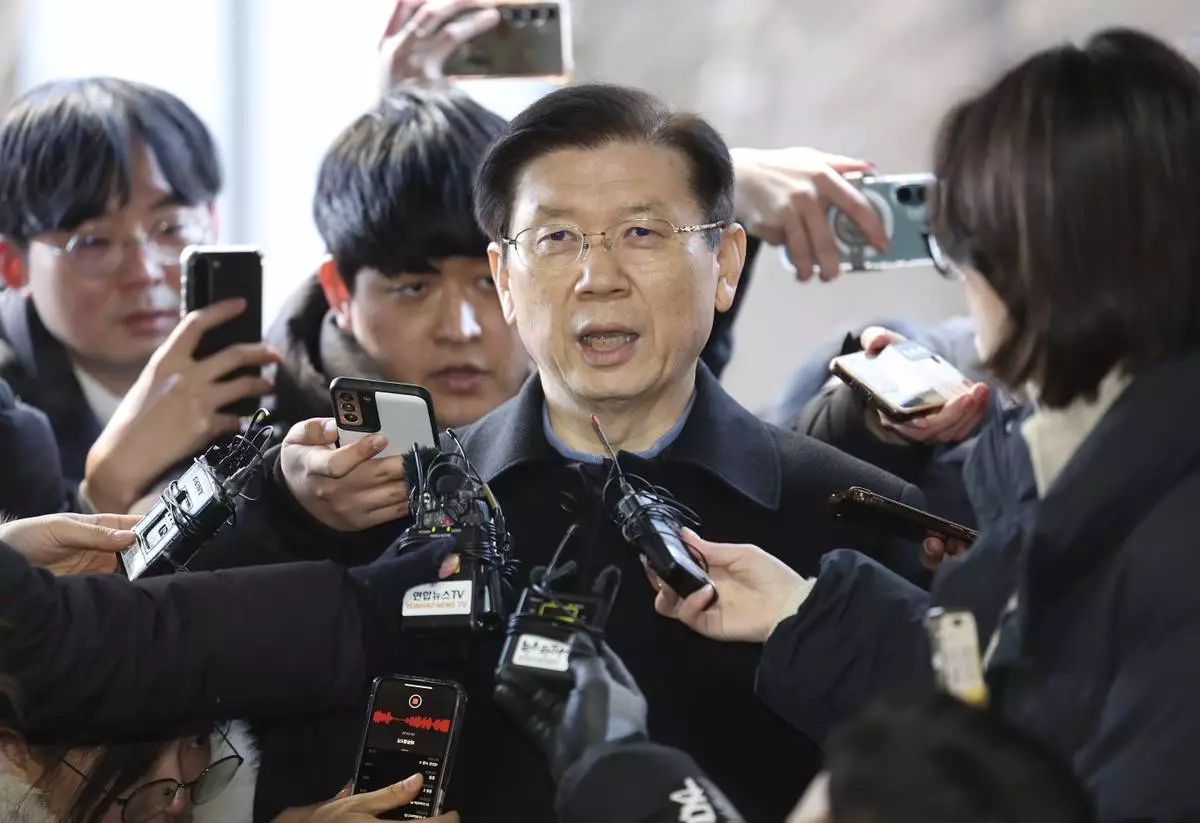
Park Jong-joon, the chief of the presidential security service, arrives at the Joint Investigation Headquarters in Seoul, South Korea, Friday, Jan. 10, 2025. (Lim Hwa-young/Yonhap via AP)





